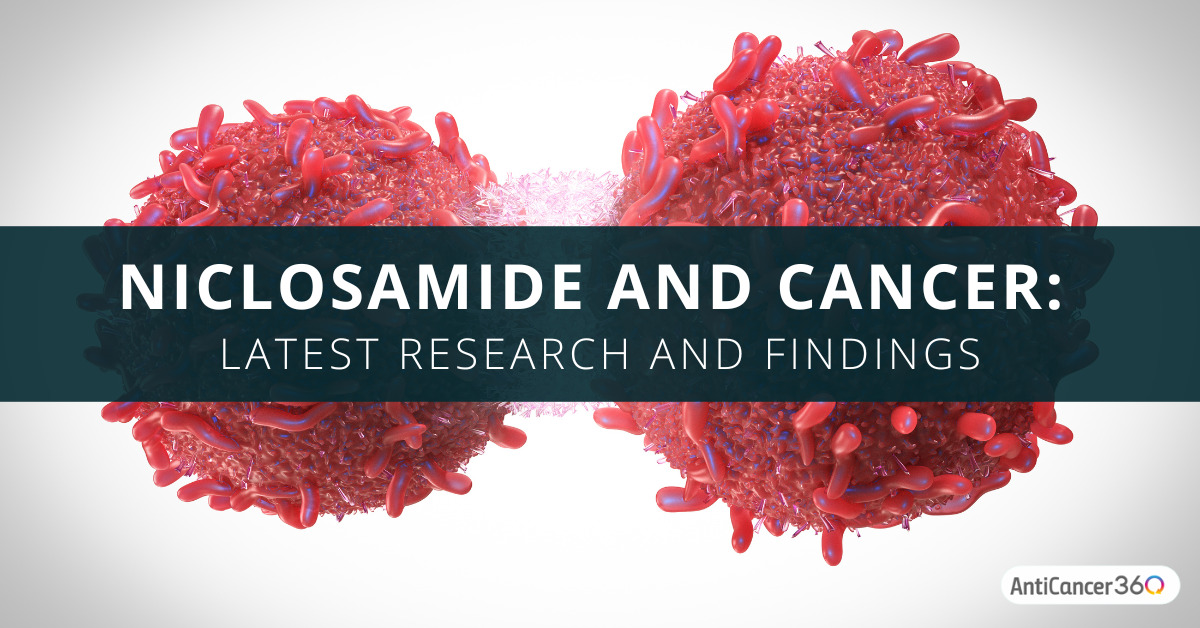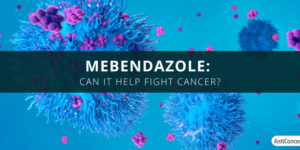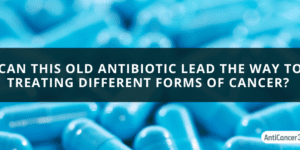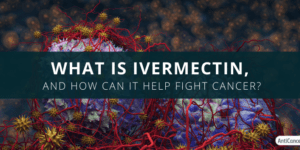Cancer is a difficult obstacle to overcome and fighting it can seem daunting. Knowing full well you want to do everything possible to fight it, you will need many options to form your arsenal. The good news and, perhaps the great news, is there are many things that you can do in addition to your oncology treatments to strengthen your battle with cancer. You do not have to go into this fight alone.
At AntiCancer360 we help you navigate the anticancer world so that you can make the most informed decisions about your anticancer approach. We leverage popular integrative approaches that involve adding natural substances, honing your nutrition while limiting sugar intake, and utilizing certain “off-label” medications for potential anticancer benefits. Examples of drugs commonly used off-label for this purpose include mebendazole, ivermectin, doxycycline, aspirin, azithromycin, and metformin. Following the theme of off-label use, we are excited to dive into another medication that may offer some keys to beating cancer: niclosamide.
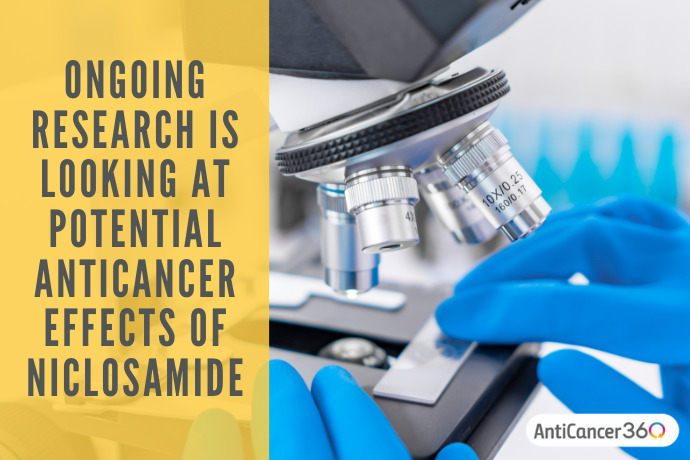
Niclosamide is classified as an anthelmintic (“Antiworm”) medication. Researchers are studying if this medication might be beneficial against cancer. Read on to learn more about the science behind the anticancer effects of niclosamide and how you can use it to your benefit.
What is Niclosamide?
Niclosamide was approved in 1982 by the FDA for use in humans, however, it is no longer available in the United States [1]. It has been in use in other countries for more than 50 years [2]. In other parts of the world, niclosamide is a commonly prescribed anthelmintic (“Antiworm”) like mebendazole. It is also included in the World Health Organization’s list of essential medicines [3]. Niclosamide effectively treats luminal adult tapeworm infections and other intestinal parasites. The drug has a good safety profile and is relatively inexpensive.
As we have noted in several other articles, repurposing old drugs to fight cancer is part of a more significant trend to find more economical ways of winning the battle against cancer.
Let’s take a closer look at niclosamide’s anti-tumor effects.
Potential Pathways for the Anticancer Effects of Niclosamide
Recent evidence suggests that niclosamide has inhibitory (blocking) effects on multiple cell signaling pathways, in particular, the pathways that are overexpressed, always active, or have undergone mutation in many different cancer cell types [4]. This clinical feature of niclosamide could make it a potent asset in the effort to disrupt cancer metabolism.
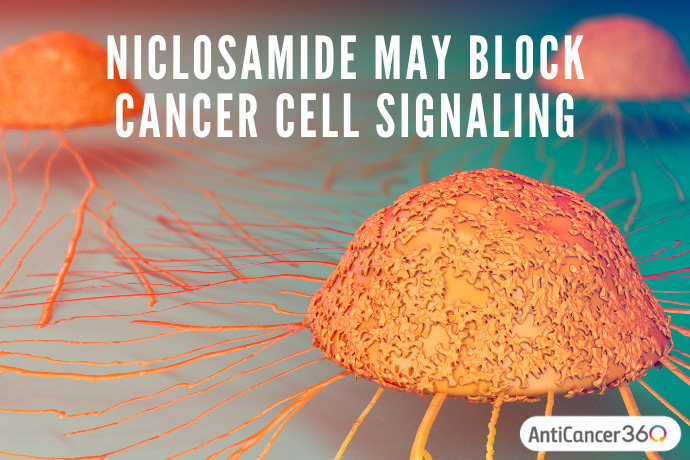
Pathways implicated in cancer growth and progression include Wnt/β-catenin signaling, JAK/STAT, mTORC1, Notch, and NF-κB. Try not to not get lost in the names and abbreviations. Generally speaking, these pathways are exploited by cancer cells to either initiate tumor formation, prevent cell death, initiate metastasis, or render normal cells susceptible to oncogenic changes [5]. Leveraging what we already know about niclosamide and taking action to improve niclosamide’s affinity for these pathways is a key step in positioning niclosamide as a preferred anti-cancer agent [6].
The Wnt/β-catenin pathway is central to tumor initiation, tumor growth, differentiation, and metastasis. Cancers relying on this signaling pathway include adrenocortical carcinoma, ovarian cancer, glioma, colorectal, breast, head and neck, and renal cell carcinoma. One study points out that more than 90% of colorectal cancers have mutations that lead to hyperactivation of this pathway [7]. Niclosamide disrupts Wnt/β-catenin signaling by promoting the degradation of specific proteins involved with the pathway thus preventing the expression of target genes involved in cancer cell survival.
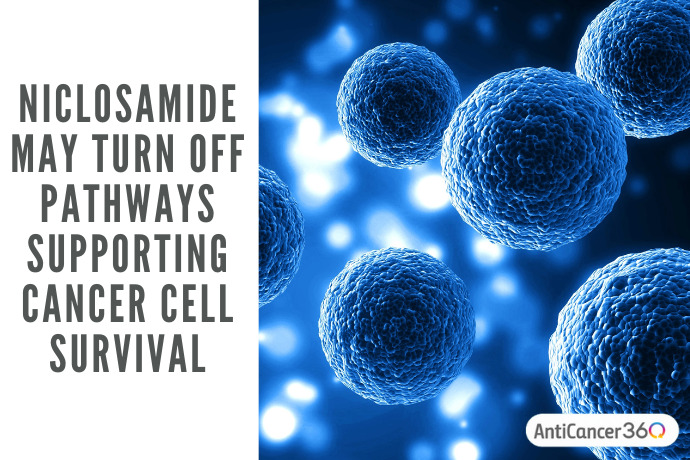
Dysfunctional cellular pathways such as the ones mentioned above drive the production of specific factors that contribute to aberrant cell growth. The JAK (Janus kinase)/STAT (Signal transducers and activators) pathway is integral to controlling cell proliferation, death, new blood vessel growth (angiogenesis), and many other important cellular functions. In cancer tissue, this pathway plays a key role in cancer inflammation within the tumor microenvironment, activating malignant cells [8].
A study demonstrated niclosamide’s effectiveness in shutting down the JAK/STAT pathway in a prostate cancer cell line [9]. Another study observed similar inhibition in multiple myeloma cells [10]. Additional evidence that niclosamide may be effective against this critical pathway came from a study showing niclosamide can prevent differentiated cancer cells from converting into cancer stem cells [11]. Cancer stem cells will seed themselves in different sites of the body, which often leads to cancer recurrence and metastasis. Niclosamide also inhibits the JAK/STAT pathway in head and neck cancer and lung cancer [12],[13].
The last oncogenic pathway we would like to touch on is the Nuclear-factor-kappa B, NF-κB pathway. Under normal circumstances, the NF-κB pathway influences our cellular survival, differentiation, immune response, and subsequent inflammation. In the presence of cancer, the inflammatory microenvironments of a tumor keep the NF-κB in overdrive. Random mutations can also occur in genes coding for proteins in this pathway, consequently leading to hyperactivation. The cancer cell leverages this dysregulated pathway to aid the cancer in proliferation and enhances the cancer cells ability to initiate metastasis [14]. Various studies have shown that niclosamide can shut down NF-κB signaling in different types of cancer such as acute myelogenous leukemia, ovarian cancer, multiple myeloma, and human glioblastoma cells.
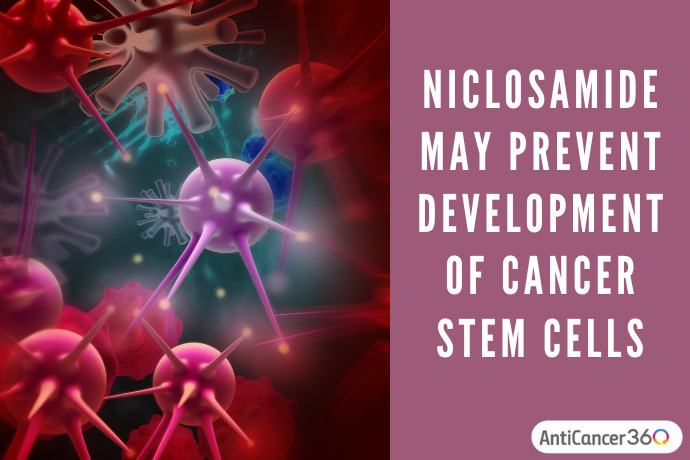
Cancer presents many challenges, but many therapeutic options and treatments are available to overcome those challenges. While these treatment options are often expensive and not without their inherent risks, medicine continues to search for effective and less harmful ways to battle cancer. Niclosamide may have the potential to be a drug that effectively fights cancer without affecting normal tissue.
Frequently Asked Questions about Niclosamide
Where can I get niclosamide?
Niclosamide is not currently available in the United States for human use. Niclosamide is available in countries where the indications for niclosamide are prevalent.
What dosage of niclosamide is needed to fight cancer?
This is a tough question. The levels of niclosamide vary from person to person due to how it is metabolized. The other difficulty is that scant data exists about niclosamide’s full activity within human beings. Because specific data in humans is lacking, it is difficult to say what dosing schedule would be effective in fighting cancer.
Can niclosamide cure cancer?
Unfortunately, no, niclosamide cannot cure cancer. Early studies in different cancer cell lines and mouse models have shown promise that niclosamide can make an impact on cancer progression.
Should You Consider Taking Niclosamide?
You should always discuss the potential benefits and risks of any medication or dietary supplement with your healthcare provider or integrative cancer treatment team. If they advise you to take niclosamide, be sure to adhere to their recommended dosage limits and any monitoring plans, such as periodically checking your liver function.
When you are fighting late-stage or difficult-to-treat cancer, you want to fight cancer in every possible direction. This Aggressive Integrative Approach to fighting cancer may incorporate the off-label use of drugs and natural supplements, based on available evidence, without interfering with your oncology treatments.
Are You A Good Candidate For Our Program?
If you’d like to learn more about AntiCancer360 and see if we can help you… please watch our free online webinar to learn more about our approach. At the end, you’ll be able to schedule a free call with our team to discuss your case in detail.
Medical Disclaimer: The information in this article is meant for educational purposes only. It is not intended to replace a healthcare provider’s medical advice, diagnosis, or treatment. Consult a healthcare practitioner before taking any new medications.
Dr. Andrew Cox is a graduate of the University of Pittsburgh and is part of the AntiCancer360 team as a consultant pharmacist and medical writer. He received his Bachelor’s degree in Biology from Marist College and a Master of Arts in Cell Biology from Villanova University prior to completing his Doctor of Pharmacy at Pitt. He also completed his Masters of Business Administration from the University of Maine. His expertise helps us create safe herbal and supplement combinations and avoid potential drug interactions.
Andrew has been a licensed pharmacist since 2013 with experience in outpatient retail pharmacy, long term acute care, and managed care pharmacy. He is interested in the appropriate utilization of natural substances to effectively prevent and treat cancer in addition to the traditional treatment strategies. He is also interested in the research and the latest findings of the mechanisms by which various natural compounds affect the tumor microenvironment
In his free time, Andrew enjoys traveling, reading, and the Premier League games on the weekends. He resides in Pittsburgh, Pennsylvania with his wife, daughter, and a boxer mix named, Party Martie.

